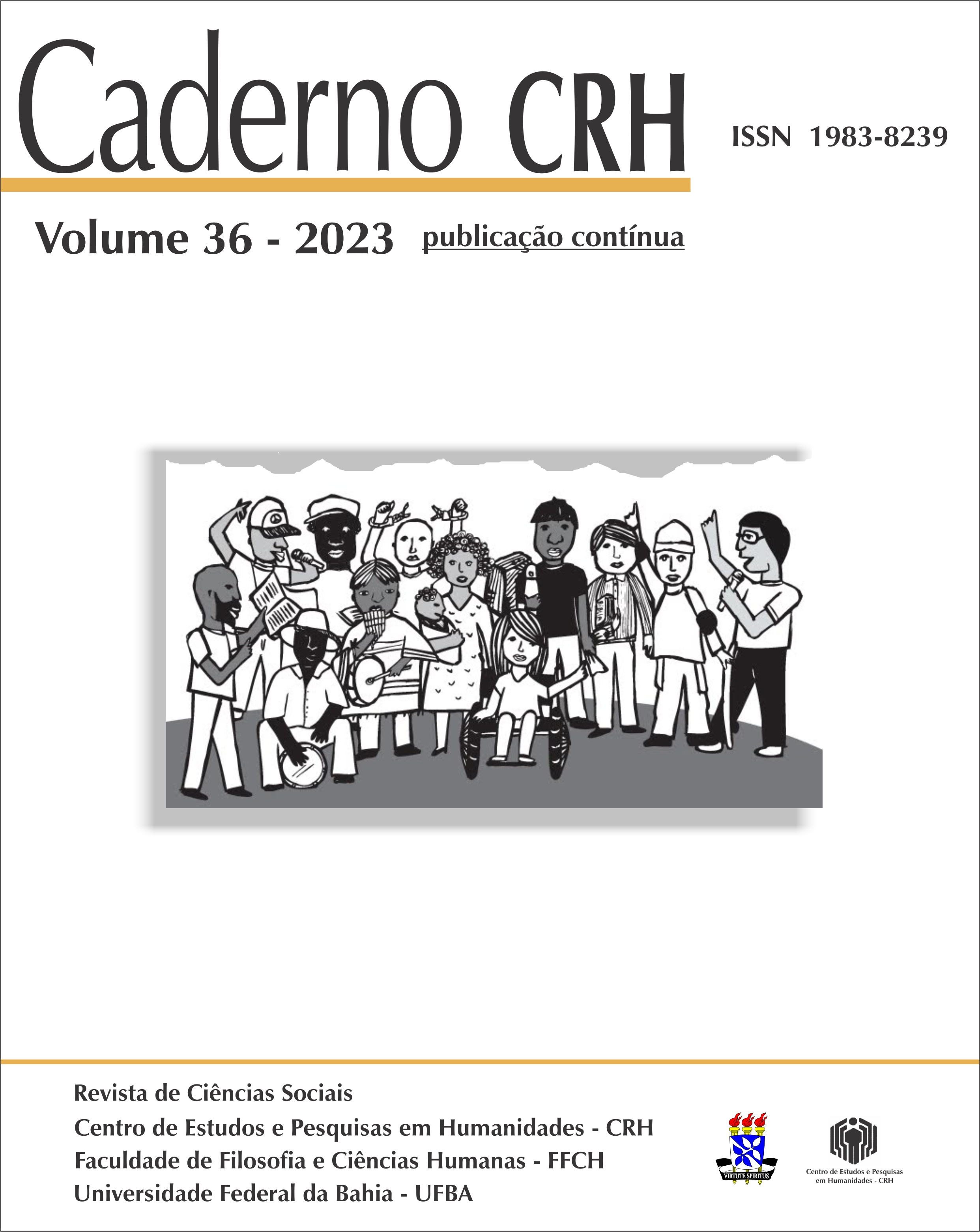PEDAGOGIA E ÉTICA CRÍTICA, REFLEXÕES SOBRE O POLÍTICO A PARTIR DA AUTONOMIA ZAPATISTA
DOI:
https://doi.org/10.9771/ccrh.v36i0.53164Palavras-chave:
Zapatismo, Ética política, Movimentos sociais, Democracia participativa, DescolonizaçãoResumo
Este ensaio oferece uma série de reflexões críticas sobre como uma ética crítica se relaciona com a produção de conhecimento e a tomada de decisões nos territórios autônomos de comunidades simpatizantes do Exército Zapatista de Libertação Nacional (EZLN) em Chiapas, México. Analisa como essas práticas criam outras possibilidades de existência-vida. As práticas de tomada de decisão e produção de conhecimento em autonomia vinculam o político a exercícios profundamente pedagógicos. Isso promove impulsos anticoloniais apoiados em práticas democráticas participativas. O ensaio analisa como o exercício da autonomia zapatista se alimenta de uma genealogia política dos povos originários mesoamericanos baseada na comunalidade, a modifica e reinterpreta de tal forma que gera um contrapeso pedagógico relevante diante da herança vanguardista da libertação nacional lutas da segunda metade do século XX, na América Latina e em todo o continente africano e no sudeste do continente asiático.
Downloads
Referências
AGUILAR, Yásnaya Elena. Ää: manifiestos sobre la diversidad lingüística. Ciudad de México: Almadía. 2020.
CRUZ, Emiliana. Reflexiones teóricas en torno a la función del trabajo de campo en lingüística-antropológica: contribuciones de investigadores indígenas del sur de México, Honolulu: Language Documentation & Conservation Department of Linguistics University of Hawai‘i at Mānoa. 2020.
DESINFORMÉMONOS. Flores en el desierto. Ciudad de México: Colectivo Desinformémonos. 2018.
FANON, Franz. Black Skin, White Masks, New York: Grove Press. 1967.
MOHANTY, Chandra y Jacqui Alexander. Feminist Genealogies, Colonial Legacies, Democratic Futures. New York: Routledge Press. 1997.
MORA, Mariana. Política kuxlejal, autonomía indígena, estado racial e investigación descolonizante en comunidades zapatistas. Ciudad de México: Ciesas. 2018.
MORA, Mariana y MORENO FIGUEROA, Mónica. Horizons of anti-racist organizing in Mexico, NACLA Report on the Americas, 53:3, 239-247. 2021
MORA, Mariana y MORENO FIGUEROA, Mónica “Agendas feministas antirracistas y decoloniales, la búsqueda del locus de enunciación del ser mestiza”. Estudios sociológicos, Colegio de México. XL, núm. 40. p. 193- 227. 2022.
OROPEZA, Daliri. “Reciben a Marichuy y comparten las problemáticas en Neza”. Desinformémonos, Acceso en: 1 de diciembre: https://desinformemonos.org/reciben-marichuy-comparten-las-problematicas-neza/ 2017.
» https://desinformemonos.org/reciben-marichuy-comparten-las-problematicas-neza/
RIVERA CUSICANQUI, Silvia. “Tenemos que producir pensamiento a partir de lo cotidiano”, El Salto, Acceso en: 17 de febrero. https://www.elsaltodiario.com/feminismo-poscolonial/silvia-rivera-cusicanqui-producir-pensamiento-cotidiano-pensamiento-indigena 2019.
ROBLES HERNANDEZ, Sofía y CARDOSO JIMÉNEZ, Rafael. Floriberto Díaz. Escrito. Comunalidad, energía viva del pensamiento mixe Ayuujktsënää’yën - ayuujkwënmää’ny – ayuujk mëk’äjtën, Ciudad de México: UNAM. 2014.
SALINAS CESAREO, Javier. En 2018, 106 feminicidios en Edomex. Recuperado de La Jornada: https://www.jornada.com.mx/ultimas/2019/01/27/en-2018-106-feminicidios-en-edomex-6914.html Acceso en: 27 de enero de 2019.
» https://www.jornada.com.mx/ultimas/2019/01/27/en-2018-106-feminicidios-en-edomex-6914.html
TZUL TZUL, Gladys. “Archipiélago y expansión algunas dinámicas para comprender la política comunal”, Ichan Tecolotl núm. 368 2022.
VILLORO, Luis. “Ética y política”, Ciudad de México. CEICH, UNAM. 2000.
VILLORO, Luis. Identidad Múltiple, Ciudad de México: Colegio Nacional. 2022.
WOLFE, Peter (2006). Settler colonialism and the elimination of the native. Journal of Genocide Research, 387-409.
Downloads
Publicado
Como Citar
Edição
Seção
Licença

Este trabalho está licenciado sob uma licença Creative Commons Attribution 4.0 International License.
Todo o conteúdo da revista, exceto onde indicado de outra forma, é licenciado sob uma atribuição do tipo Creative Commons BY.
O periódico Caderno CRH on-line é aberto e gratuito.





